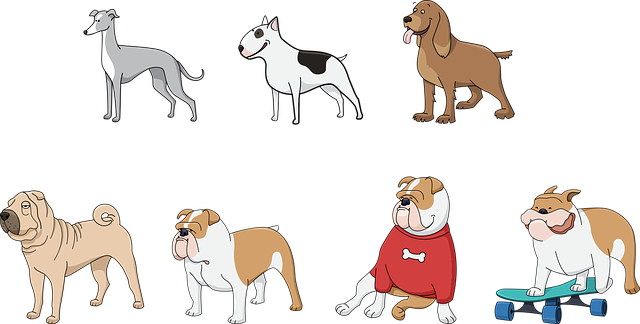
Image Source: Pixabay
Each and every pet is different, making it difficult to pinpoint the life expectancy of any particular dog. However, if you are looking for a pet who is likely to live a long, healthy life with minimum health problems, you might consider one of the breeds on this list.
1. Border Collie
Average life expectancy: 10 to 14 years
Most common health problems: seizures, hypothyroidism
Personality traits: energetic, intelligent, active, playful, trainable
Border collies are excellent pets if you have the time and energy to pay them the attention they need.
2. Chihuahua
Average life expectancy: 14 to 18 years
Most common health problems: patellar luxation, hypoglycemia, heart valve disorders
Personality traits: intelligent, loyal
These small dogs are excellent indoor pets who need minimal care and attention.
3. Australian Shepherd
Average life expectancy: 12 to 15 years
Most common health problems: hypothyroidism, eye disorders, hip dysplasia
Personality traits: energetic, active, intelligent
Australian Shepherds need both physical and mental stimulation, but they are great pets for owners who can devote the time and effort they need.
4. Siberian Husky
Average life expectancy: 11 to 13 years
Most common health problems: hypothyroidism, cataracts, and eye disorders
Personality traits: active, loving, energetic, playful, hard-working
Siberian Huskies are some of the most loving and energetic pups you will find.
5. Labradoodle
Average life expectancy: 10 to 14 years
Most common health problems: hip dysplasia, eye disorders, Addison’s disease
Personality traits: friendly, devoted
Labradoodles make excellent pets for all owners, but they are a favorite breed for those with allergies.
6. Havanese
Average life expectancy: 12 to 14 years
Most common health problems: deafness, elbow dysplasia, patellar luxation
Personality traits: sociable, snuggly, friendly, devoted
Havanese are small breed dogs that love to do nothing more than snuggle and stay by your side.
7. German Shorthaired Pointer
Average life expectancy: 12 to 14 years
Most common health problems: hip dysplasia, hypothyroidism, gastric torsion
Personality traits: energetic, active, need mental stimulation
These pets need frequent walks and lots of outdoor activities to keep their minds and bodies healthy.
8. Foxhound
Average life expectancy: 11 to 13 years
Most common health problems: hip dysplasia, ear infections
Personality traits: hard-working, kind, loyal
Foxhounds were trained for work, and that trait has carried through the breed even today.
9. Australian Cattle Dog
Average life expectancy: 10 to 13 years
Most common health problems: hip dysplasia, elbow dysplasia, deafness
Personality traits: hard-working, intelligent, problem-solvers, energetic
Australian Cattle dogs are still used for hard work, making them diligent companions.
10. Mixed Breed
Average life expectancy: varies
Most common health problems: varies
Personality traits: varies
Mixed breed dogs are some of the healthiest you’ll find. However, because they are mixed breeds of often unknown origin, it can be difficult to know their exact genetic makeup or predict their personality or possible health conditions.
Choosing Your New Pet
While all dogs are prone to certain health problems more than others, it is worth noting that many of the common health conditions mentioned above are still rare for these breeds.
Many of the breeds mentioned rarely have any serious health conditions at all. When it comes to pet health, your love, attention, and care matter most of all.
Taking Care of Your New Pet
Whichever breed you choose, please make sure you take care of your new pet. All dogs need regular checkups with their veterinarian, as well as recommended vaccinations and booster shots. In addition, you’ll need to administer medication, like a flea pill from a vet to protect against fleas, and a monthly heartworm medication as well. With proper care and lots of love, you and your new pet can live a long, happy life together!
Read also: How to raise a bulldog
About The Author:
This article is written by John and he is an expert in pet health care.




